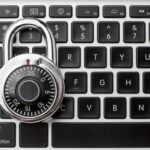While people go to great lengths to protect their computers and networks, they often forget the importance of email support and security. This came into focus on Feb. 6, 2013, when email accounts belonging to former presidents George H.W. Bush and his son, George W. Bush were hacked, according to an article that appeared on The Smoking Gun website.
Accounts for other members of the Bush family also were hacked. A website also was hacked and was used to host photos and personal correspondence that were stolen by the person that hacked the accounts.
These emails included home addresses, cell phone numbers, and email addresses for numerous members of the Bush family. One email even included the code for the security gate along with the home address. Another email explained the condition of George H.W. Bush in detail after when he was hospitalized and included information that the family was not to let his wife know about.
Some of the photos included pictures of paintings George W. Bush was working on, which included self-portraits of him in the shower and another of him in the bathtub.
This was perpetrated by someone who most likely was doing it just for the challenge. Imagine what someone with real malicious intent could do if they accessed your personal emails.
With so many reports of thieves stealing identities, it becomes increasingly important to protect your personal information. This includes your emails, which often have your personal information.
Email support experts recommend changing password frequently
Some things you can do to protect yourself include changing your password frequently. Don’t use passwords that can be guessed pretty easily, especially if someone has already stolen personal information about you. Make it something that means something to you but not anyone else.
One way to do that is to use a sentence or line from a song or passage from a book and then use the first letter from each word to create the password. The longer the password, the harder it will be for someone to guess it.
Also, be careful about the information you send by email. If you must send secure information, try to send it in some form of code, or at the very least, send key pieces of information in separate emails.
For example, if you send a security code for a gate, send the address for the house in a separate email. If a hacker gets only one of those emails, the information is useless to him.
You also may want to get more than one email account. Use a free one that you won’t use for sensitive information to use when you sign up for services online. When you sign up for things with your email, your address may be sold to others. These buyers tend to be businesses looking to send spam to you, but you never know who will buy your address. The less that your address is available to the public, the less chance that it will be under attack.
Also, if you have a program on your smartphone that stores all your passwords for your emails, make sure that you lock your phone so that it is password-protected. Otherwise, someone who gains access to your phone can gain access to your email account as well.
If you use your email for a lot of correspondence that you want to keep secure, consider using the email support services of a computer tech support company. They can help give you the most secure email possible.











